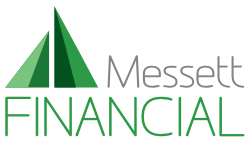 Here are the Top Financial Tips for the Month of July to help you stay on track, prepare for upcoming expenses, and make the most of mid-year opportunities:
Here are the Top Financial Tips for the Month of July to help you stay on track, prepare for upcoming expenses, and make the most of mid-year opportunities:
🌞 1. Mid-Year Financial Check-In
- Review your budget & goals. Are you on track with savings, debt repayment, and spending?
- Adjust as needed. Reallocate funds if you’re falling behind or exceeding expectations.
📅 2. Prepare for Back-to-School & Fall Expenses
- Start budgeting now for school supplies, tuition, and clothes.
- Look for sales during July back-to-school promotions (they start early!).
💵 3. Maximize Summer Sales & Avoid Overspending
- Take advantage of July deals (e.g., Amazon Prime Day, July 4th sales), but only for planned purchases.
- Set spending limits before shopping events.
🧾 4. Reevaluate Subscriptions & Monthly Expenses
- Mid-year is a great time to audit your recurring charges (streaming, apps, gym, etc.).
- Cancel what you’re not using and negotiate bills (phone, internet, insurance).
🏖️ 5. Budget for Travel or Staycations
- Plan your remaining summer trips carefully to avoid high-season price spikes.
- Look for free local events or budget-friendly activities.
🛡️ 6. Review Insurance Coverage
- Double-check your health, auto, and home insurance policies.
- Make sure coverage still aligns with your life situation and deductibles are appropriate.
📈 7. Check Your Credit Report
- You’re entitled to a free credit report weekly via AnnualCreditReport.com (through Dec 2025).
- Fix any errors and use it as a guide to improve your credit score.
🧾 8. Start Preparing for Tax Changes
- New tax rules may take effect soon; use July to organize receipts or plan deductions.
- Consider adjusting your withholding if you’ve had income changes this year.
🪙 9. Increase Contributions to Retirement Accounts
- Try boosting your 401(k) or IRA contributions before year-end deadlines sneak up.
- If you got a mid-year raise, redirect a portion toward savings or investments.
🧠 10. Learn Something New About Money
- Read a book, listen to a finance podcast, or take a short online course.
- Financial literacy is a long-term investment.

